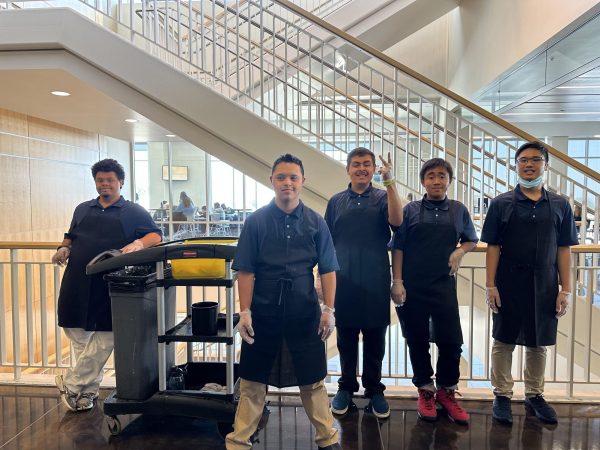The Front Line
September 16, 2020
Now more than ever, the whole world is being impacted by one main source, the COVID-19 pandemic. The situation is being handled differently in various places and with different criteria. In Brevard County, medical professionals are constantly working on improving and administering care for those affected by the virus.
Dr. Ashlee Moore, the medical director of critical care for the IDN (integrated delivery network) has been coordinating the clinical management for COVID-19 patients at four different IDN hospitals in Brevard County: Holmes, Cape Canaveral, Viera, and Palm Bay for Health First, with her primary location being Holmes Regional Medical Center. Moore’s job is to ensure that the processes being used to take care of patients in intensive care units are optimal. As a surgeon, Moore specializes in trauma and acute care such as car accidents and gunshot wounds. However, during the pandemic, her role has been more focused on COVID-19 patients in intensive care units.
“My main priority is to prevent further spread of the illness by keeping staff safe and identifying and isolating COVID-19 patients to allow their ongoing treatment. As we work to contain the disease, we are dedicating a lot of time to finding new and better treatment strategies to keep patients alive,” Moore said.
As a result of the unique care needed for COVID-19 patients, new systems and procedures needed to be in place to give patients the best care possible without the use of a vaccine or cure for the virus. These new means of care probably will change health care in the future.
“We may learn more about the underlying scientific process of inflammation and the human response. In addition, we will learn how to prepare for disasters in a more organized fashion and we may also use telemedicine more frequently,” Moore said.
Doctor Anthony Barile, an Infectious Diseases physician, is the System Infection Control Medical Director at Holmes Regional Medical Center. His primary role has been helping treat patients with a variety of infectious conditions. However, the increasing threat of COVID-19 altered his role.
“Initially, I was working in the hospital seeing patients with suspected COVID-19, but as the outbreak evolved, my employer, Health First, moved me out of the hospital and placed me in our Command Center. At the Command Center, I am working on the Surge Planning and Clinical Care Committee where we have been making arrangements for all aspects of the COVID-19 outbreak as it relates to our four hospitals, including patient care issues, personal protective care (PPE) issues, making sure we have appropriate bed and supply availability, etc. We have also been tracking our medication use like hydroxychloroquine on patients with COVID-19 and looking at the outcomes,” Barile said.
As Moore also stated, the impact of COVID-19 has dramatically increased the use of telemedicine. Telemedicine is when the physician communicates with the patient through video applications such as Facetime, Jabber, and videoconferencing. This allows the physician to see and talk with the patient without coming in contact with them, limiting the potential exposure to the virus and reducing the need for PPE (personal protective equipment), which is in limited supply.
“One of the things I envision for infectious disease specialists, in particular, is that we will likely do a lot of our work via telemedicine instead of the traditional having the patient come in to see us in the office. We have already begun doing this to a large degree since the pandemic started,” Barile said.
The COVID-19 pandemic has also impacted various other types of care in order to minimize the likelihood of the virus spreading at an increased rate along with reducing visitation and procedures.
“Patient care has changed quite a bit during the outbreak in that we had to severely reduce things like elective surgeries. We had to put visitor restrictions into place. Our hospital census has been down pretty significantly as has our Emergency Room activity. We had to build special units within the hospitals with negative pressure rooms to care for COVID-19 patients,” Barile said.
Along with patient care changing as a result of COVID-19, priorities of hospitals have shifted in accordance with the ways in which medical professionals treat patients and prevent themselves from contracting and spreading the virus has also changed.
“The main priority for the hospital includes the things mentioned above, but mainly involves safety for our patients and associates as well as making sure we have enough PPE and adequate staffing (nurses, doctors, etc.),” Barile said.
One beneficial part of the current situation is that medical professionals are constantly developing new and innovative techniques and procedures in order to increase positive outcomes for their patients.
“Over a dozen physicians, nurses, and respiratory therapists worked together to create an airway management protocol for COVID-19 patients who need to be placed on a ventilator. We created a safe process that will be consistent each time,” Moore said.
“Doctors at the University of Florida figured out how to fashion masks for healthcare workers from operating room towels that would normally have been thrown away,” Barile said.
Besides creative solutions doctors have discovered to treat patients and take care of themselves, other local public organizations have contributed to health care workers in order to show their appreciation for all of their hard work during the COVID-19 pandemic.
“Some of the inspirational things from all of this for healthcare workers has been the outpouring of support from various groups including restaurants and businesses providing food to our associates at the hospitals, Disney providing cookies to all of our associates, Brevard Public Schools providing sanitation wipes, and many people providing masks for us,” Barile said.
The work done by medical professionals during this incredibly difficult time as a result of the COVID-19 has been lifesaving as their treatments have given thousands of patients new hope. Especially in Brevard County, doctors, and associates of Health First have given 100 percent of their effort into finding the best possible ways to treat COVID-19 patients.
This story was originally published on The Growl on September 15, 2020.



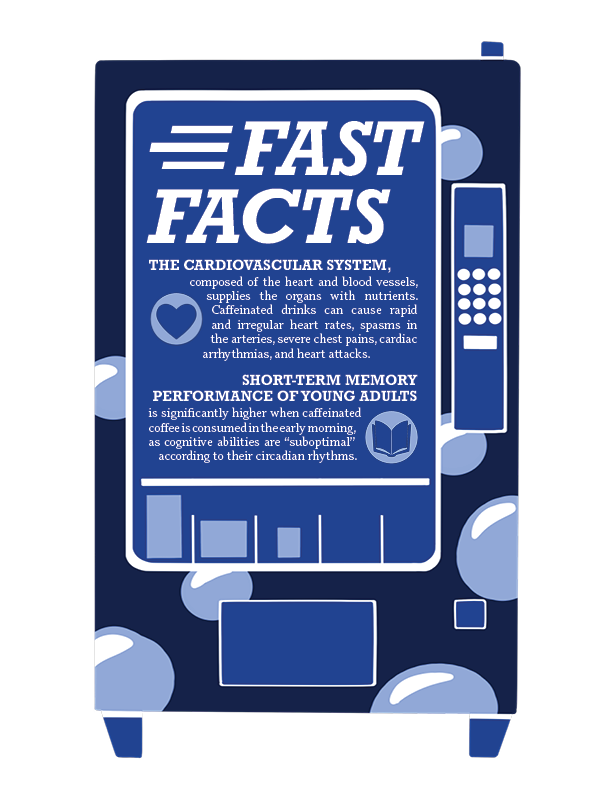


![Teacher Robert Snidman grades papers after school. Prior to teaching at Ladue, Snidman faced unexpected adversity at Hazelwood. “[There was] open drug dealing in the bathrooms and in the back of classrooms, Snidman said. I did my best for five years.](https://bestofsno.com/wp-content/uploads/2024/05/RobertSnidman-1200x801.jpg)





![Envisioning a cathedral in his mind, senior Soren Frederick puts pencil to paper and practices a rough sketch in the drawing room. Frederick grew up surrounded by a family of artists who helped him realize his passion for drawing and painting as he matured. “My family [is] very much [an inspiration] for drawing and painting. [Art] didn’t start [in the family] with me; it started with my mom and my older sister, and my older brother is very good at drawing [too],” Frederick said.](https://bestofsno.com/wp-content/uploads/2024/05/DSC_0017-1200x800.jpg)

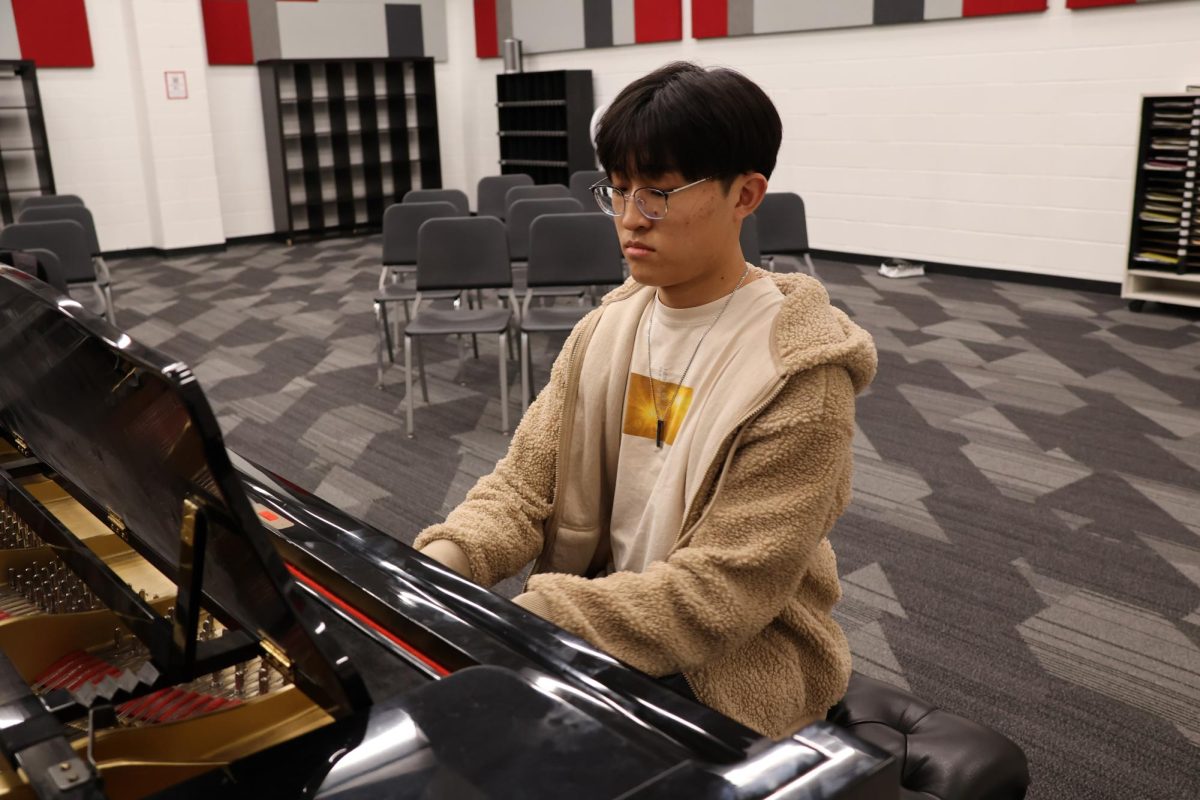
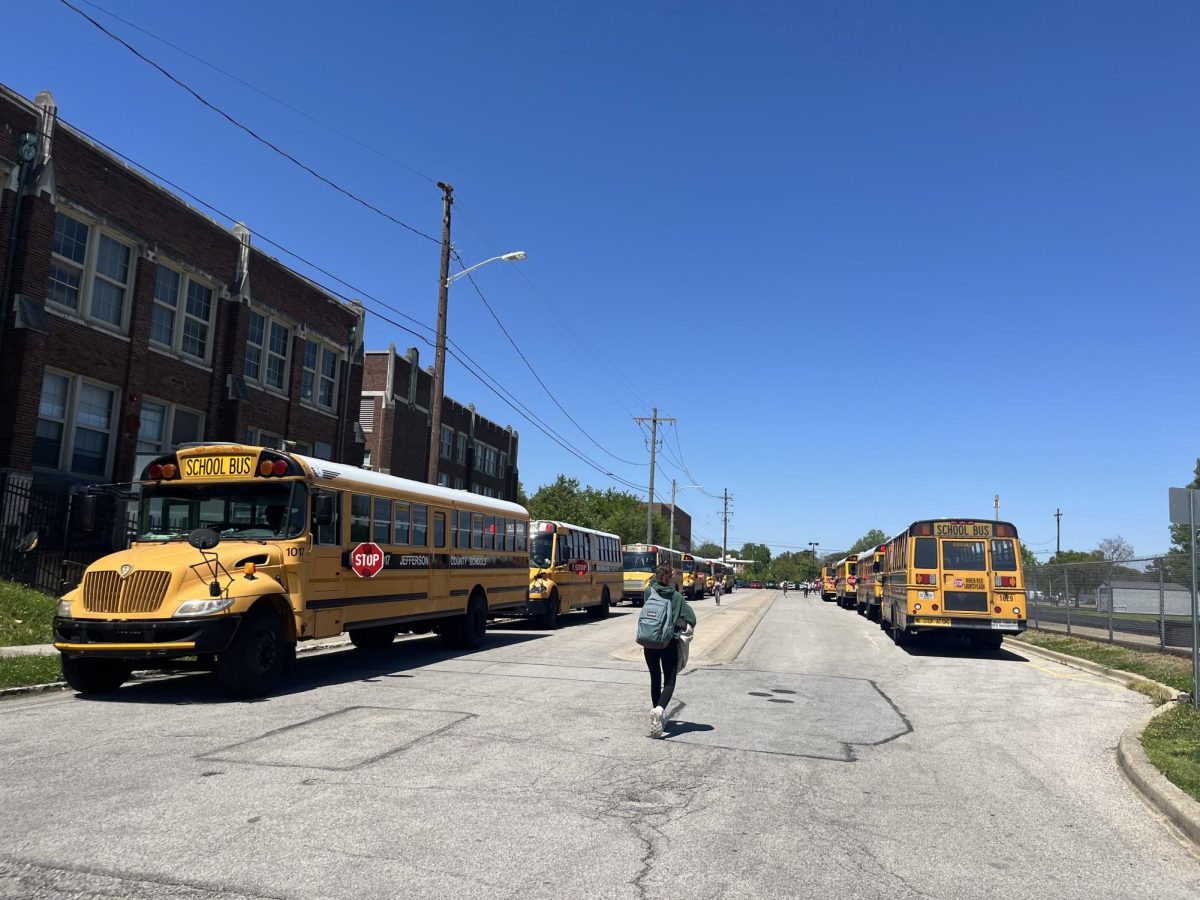





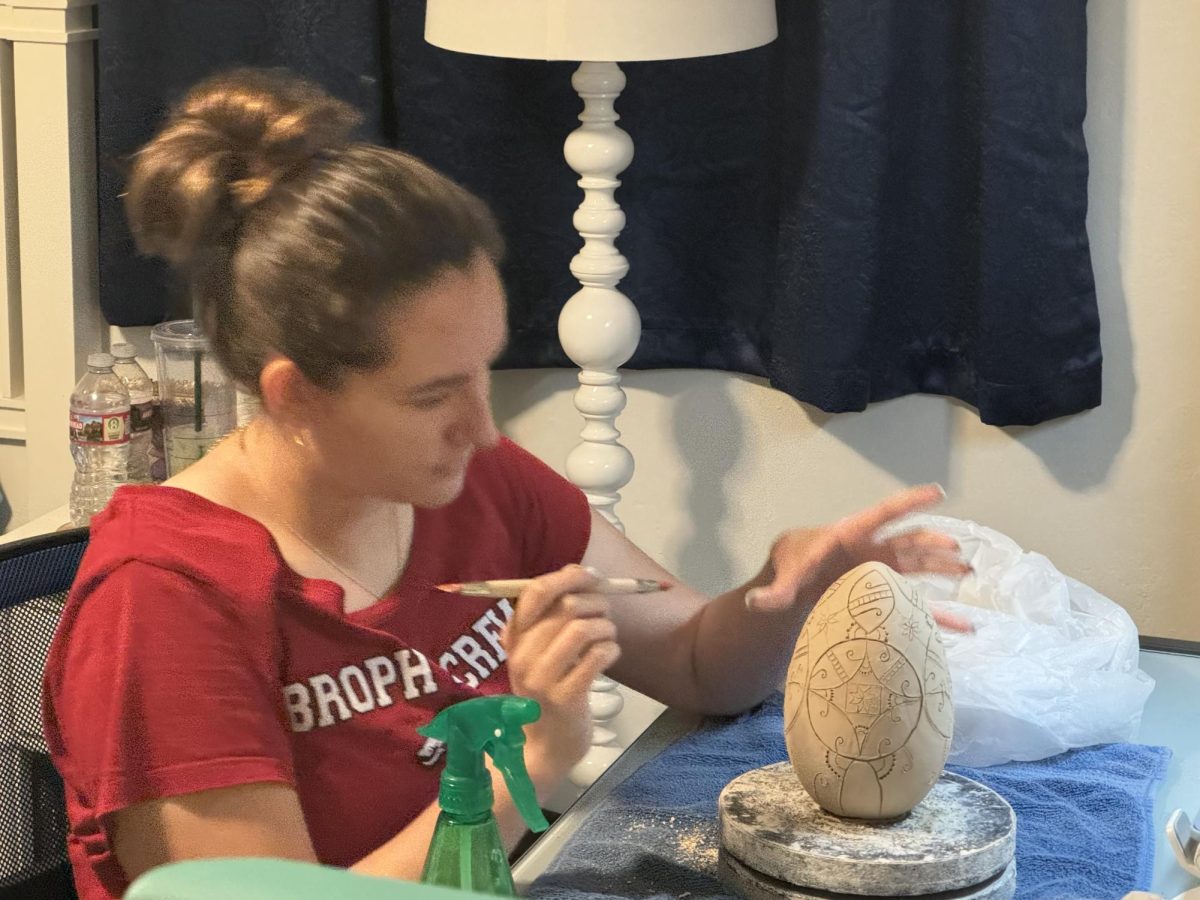







![IN THE SPOTLIGHT: Junior Zalie Mann performs “I Love to Cry at Weddings,” an ensemble piece from the fall musical Sweet Charity, to prospective students during the Fine Arts Showcase on Wednesday, Nov. 8. The showcase is a compilation of performances and demonstrations from each fine arts strand offered at McCallum. This show is put on so that prospective students can see if they are interested in joining an academy or major.
Sweet Charity originally ran the weekends of Sept. 28 and Oct. 8, but made a comeback for the Fine Arts Showcase.
“[Being at the front in the spotlight] is my favorite part of the whole dance, so I was super happy to be on stage performing and smiling at the audience,” Mann said.
Mann performed in both the musical theatre performance and dance excerpt “Ethereal,” a contemporary piece choreographed by the new dance director Terrance Carson, in the showcase. With also being a dance ambassador, Mann got to talk about what MAC dance is, her experience and answer any questions the aspiring arts majors and their parents may have.
Caption by Maya Tackett.](https://bestofsno.com/wp-content/uploads/2024/02/53321803427_47cd17fe70_o-1-1200x800.jpg)
![SPREADING THE JOY: Sophomore Chim Becker poses with sophomores Cozbi Sims and Lou Davidson while manning a table at the Hispanic Heritage treat day during lunch of Sept 28. Becker is a part of the students of color alliance, who put together the activity to raise money for their club.
“It [the stand] was really fun because McCallum has a lot of latino kids,” Becker said. “And I think it was nice that I could share the stuff that I usually just have at home with people who have never tried it before.”
Becker recognizes the importance of celebrating Hispanic heritage at Mac.
“I think its important to celebrate,” Becker said. “Because our culture is awesome and super cool, and everybody should be able to learn about other cultures of the world.”
Caption by JoJo Barnard.](https://bestofsno.com/wp-content/uploads/2024/01/53221601352_4127a81c41_o-1200x675.jpg)



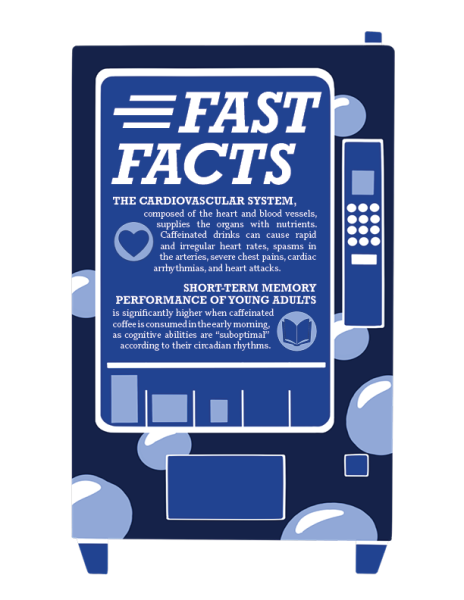


![Teacher Robert Snidman grades papers after school. Prior to teaching at Ladue, Snidman faced unexpected adversity at Hazelwood. “[There was] open drug dealing in the bathrooms and in the back of classrooms, Snidman said. I did my best for five years.](https://bestofsno.com/wp-content/uploads/2024/05/RobertSnidman-600x400.jpg)



